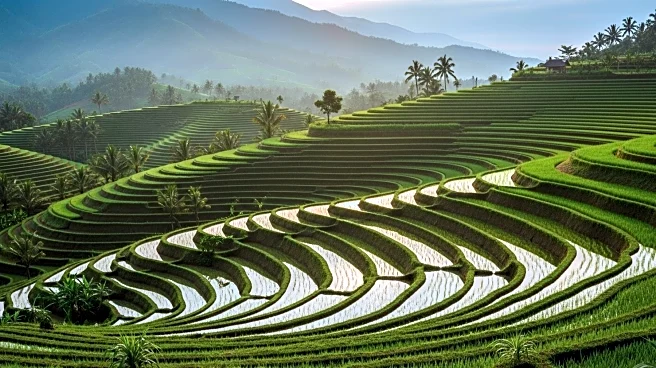What is the story about?
What's Happening?
The Yuanyang Hani Terraces in Yunnan province, China, have been recognized by being added to the 2025 World Heritage Irrigation Structures list. This accolade highlights the terraces' historical and ecological significance, as they have been a part of the region's agricultural practices for over 1,300 years. The terraces, which cover 3,740 hectares, are a testament to the Hani ethnic group's sustainable farming methods, integrating seamlessly with the surrounding environment. The local government has implemented measures to protect and sustain this heritage, including village planning and ecological compensation.
Why It's Important?
The recognition of the Yuanyang Hani Terraces underscores the importance of sustainable agricultural practices and the preservation of cultural heritage. This development not only highlights the ecological wisdom of the Hani people but also serves as a model for sustainable agriculture worldwide. The terraces' inclusion in the World Heritage Irrigation Structures list may boost tourism and global awareness, potentially leading to increased economic opportunities for the local community. It also emphasizes the need for balancing human activity with environmental conservation.
What's Next?
The local government plans to continue enhancing the protection and sustainable use of the terraces through projects like the water system connectivity initiative. This project aims to blend traditional irrigation methods with modern technology, which could further improve local agriculture and livelihoods. The ongoing efforts to preserve this heritage may inspire similar initiatives globally, promoting sustainable agricultural practices and cultural preservation.
Beyond the Headlines
The terraces represent more than just an agricultural achievement; they embody a cultural legacy that reflects the Hani people's deep connection with nature. The return of younger generations to the region, finding innovative ways to preserve and promote this heritage, suggests a growing appreciation for cultural roots and sustainable living. This trend could lead to a broader cultural renaissance, emphasizing the value of traditional knowledge in modern society.















